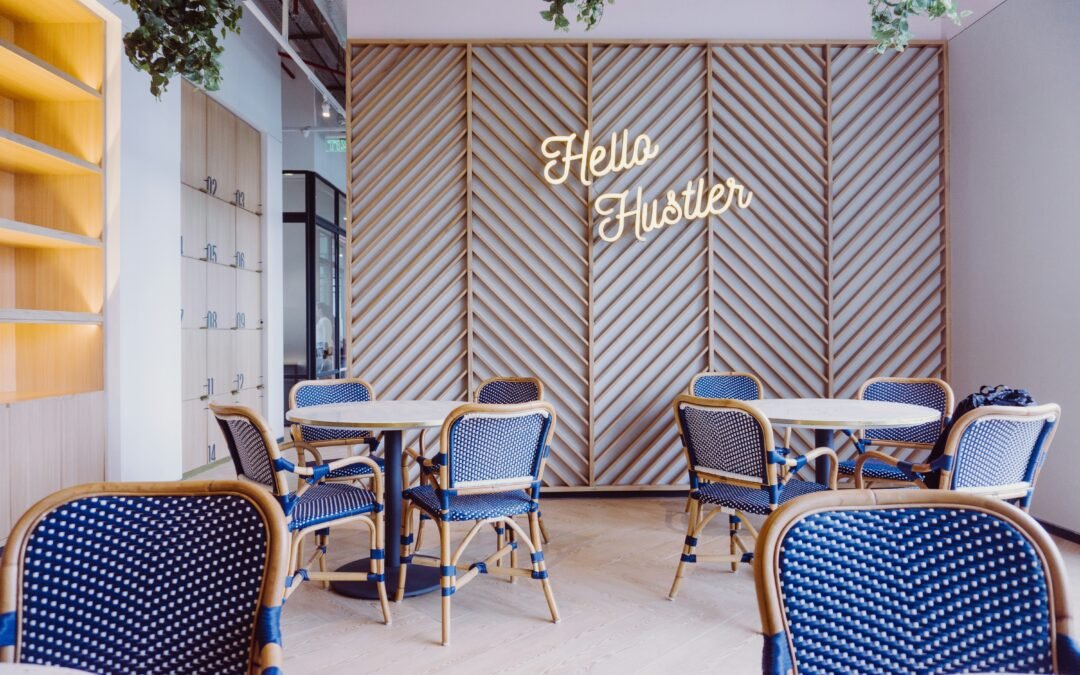
The Luxury Branding Landscape is constantly evolving
It is shaped by consumer behaviors, technological advancements, and global trends. As we look ahead to 2025, several key trends are emerging that will redefine how luxury brands connect with their audiences. This article explores five significant luxury branding trends that will shape the future of the industry.
In this article.
Skip to what matters..
- Sustainability as a Standard
- Experiential Luxury
- Digital First Strategy
- Inclusivity and Diversity
- Personalization and AI
Share this article
Sustainability as a Standard
The Rise of Eco-Conscious Consumers
Sustainability has transitioned from a niche concern to a mainstream expectation. Luxury consumers, particularly younger generations like Millennials and Gen Z, prioritize brands that demonstrate a commitment to environmental stewardship. According to a survey by McKinsey, over 70% of consumers reported that they are willing to pay more for sustainable products. This trend is prompting luxury brands to rethink their production processes and materials, emphasizing transparency and ethical practices.
Sustainable Practices in Luxury Branding
Luxury brands are responding to this demand by incorporating sustainability into their core values. This includes:
- Ethical Sourcing: Brands are sourcing materials responsibly, ensuring that they are obtained without exploiting workers or harming the environment. This includes using organic, recycled, and upcycled materials.
- Carbon Neutrality: Many luxury brands are setting ambitious goals to achieve carbon neutrality by 2025. This involves reducing emissions, investing in renewable energy, and supporting carbon offset projects.
- Circular Economy Models: Brands are exploring circular economy practices, where products are designed for longevity, repairability, and recyclability. Initiatives like take-back programs and resale platforms are becoming common.
Case Studies
Several luxury brands are leading the way in sustainability:
- Gucci: In 2020, Gucci announced its “Gucci Equilibrium” initiative, aiming to create a positive impact on people and the planet. The brand focuses on sustainability in its supply chain, reducing greenhouse gas emissions, and promoting diversity and inclusion.
- Stella McCartney: Known for her commitment to sustainable fashion, Stella McCartney utilizes innovative materials like vegan leather and recycled polyester. The brand emphasizes transparency, detailing its environmental impact on its website.
Related Articles
Experiential Luxury
Shifting Consumer Preferences
As consumers increasingly seek meaningful connections with brands, experiential luxury is gaining traction. Rather than focusing solely on products, luxury brands are creating immersive experiences that foster emotional connections.
Crafting Unique Experiences
Luxury brands are investing in experiential marketing to engage consumers on a deeper level. This includes:
- Exclusive Events: Hosting private events, product launches, and immersive experiences allows brands to connect with their clientele personally. These events often feature high-profile collaborations, art installations, and celebrity appearances.
- Personalized Services: Offering tailored services that cater to individual preferences enhances the customer experience. This could involve personal shopping experiences, customized products, or bespoke travel arrangements.
- Virtual Experiences: In a post-pandemic world, virtual experiences have become essential. Brands are utilizing technology to create virtual showrooms, online masterclasses, and interactive online events that provide a taste of luxury.
Case Studies
- Louis Vuitton: The brand’s “Louis Vuitton City Guide” offers curated experiences in major cities worldwide, combining travel and luxury. The guides feature exclusive recommendations for dining, shopping, and cultural experiences.
- Burberry: Burberry’s “Art of the Trench” campaign invited consumers to share their unique styles wearing the iconic trench coat. This user-generated content campaign created a sense of community and connection.
Related Articles
Digital-First Strategies
The Shift to Online Shopping
The luxury market has seen a significant shift toward digital platforms, accelerated by the COVID-19 pandemic. Consumers now expect a seamless online shopping experience, prompting luxury brands to enhance their digital presence.
Leveraging Technology for Enhanced Experiences
Luxury brands are adopting digital-first strategies that include:
- Augmented Reality (AR) and Virtual Reality (VR): Brands are using AR and VR to allow customers to virtually try on products, experience immersive brand storytelling, and visualize products in their own environments. For example, Sephora’s Virtual Artist app allows customers to try on makeup virtually.
- E-commerce Optimization: Luxury brands are optimizing their websites and e-commerce platforms to ensure a smooth shopping experience. This includes mobile-friendly designs, fast loading times, and easy navigation.
- Social Media Commerce: Social media platforms like Instagram and TikTok are becoming essential sales channels. Brands are utilizing shoppable posts and influencer collaborations to reach their target audience effectively.

Case Studies
- Chanel: While traditionally known for its exclusive in-store experience, Chanel has embraced digital strategies by launching its online boutique in select markets, offering a seamless luxury shopping experience.
- Dior: Dior’s Instagram campaigns feature visually stunning content that showcases products while engaging users. The brand has successfully used shoppable posts to drive traffic to its e-commerce site.
Related Articles
Inclusivity and Diversity
Reflecting a Changing Society
As societal norms evolve, consumers are increasingly seeking brands that embrace inclusivity and diversity. Luxury brands must reflect the values of their diverse customer base, celebrating different cultures, identities, and body types.
Implementing Inclusive Practices
Luxury brands can implement inclusivity in various ways:
- Diverse Marketing Campaigns: Brands should feature models of different ethnicities, body types, and ages in their marketing materials. This representation helps consumers feel seen and valued.
- Inclusive Product Lines: Expanding product offerings to include diverse sizes, styles, and price points caters to a broader audience. Brands should consider creating capsule collections that celebrate different cultures.
- Community Engagement: Engaging with diverse communities through partnerships and collaborations fosters a sense of belonging. Brands can support local artisans, cultural events, and social justice initiatives.
Case Studies
- Fenty Beauty: Rihanna’s Fenty Beauty revolutionized the beauty industry with its inclusive range of foundation shades, catering to a wide variety of skin tones. The brand’s commitment to diversity has set a new standard for inclusivity in cosmetics.
- Savage X Fenty: Rihanna’s lingerie line promotes body positivity by featuring models of various sizes and shapes in its campaigns, challenging traditional beauty standards and embracing inclusivity.
Related Articles
Personalization and AI
The Demand for Tailored Experiences
As consumers become accustomed to personalized shopping experiences in other industries, luxury brands must adopt similar strategies. Personalization enhances customer loyalty and satisfaction, making clients feel valued.
Utilizing Technology for Personalization
Luxury brands are leveraging artificial intelligence (AI) and data analytics to provide tailored experiences:
- AI-Driven Recommendations: Brands can analyze customer behavior and preferences to provide personalized product recommendations, improving the overall shopping experience.
- Chatbots and Virtual Assistants: AI-powered chatbots can assist customers in real time, answering queries and providing tailored support, enhancing the overall user experience.
- Customized Products: Brands are offering customization options that allow customers to personalize products according to their preferences, from monogramming to bespoke designs.
Case Studies
- Burberry: Burberry uses AI to analyze customer data, allowing the brand to provide personalized product recommendations and enhance its marketing strategies.
- Nike: Nike’s “Nike By You” program enables customers to customize their sneakers, creating a unique product tailored to individual preferences.
Conclusion
As we approach 2025, the luxury branding landscape is set for transformative changes driven by sustainability, experiential marketing, digital innovation, inclusivity, and personalization. To thrive in this evolving environment, luxury brands must adapt to these trends, fostering deeper connections with consumers while maintaining their heritage and exclusivity.
By embracing these trends, luxury brands can remain relevant and resonate with the values of the modern consumer, ensuring their place in a competitive market. The future of luxury branding lies in understanding and responding to the desires of consumers who seek not only exceptional products but also meaningful experiences and connections.
Related Articles




0 Comments